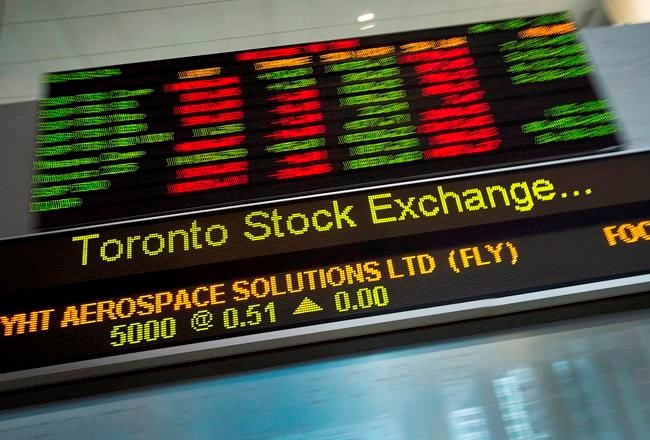TORONTO — Canada's main stock index dipped Friday to cap a losing week as COVID-19 virus and vaccine concerns weighed on the energy sector.
Worries about new strains, vaccine delays and further lockdowns are creating a bit of uncertainty about how quickly the economy will reopen and get back to normal, said Kevin Headland, senior investment strategist at Manulife Investment Management.
"There's still some risks out there and maybe we should take a bit of a pause in terms of celebrating," he said in an interview.
Reality has set in that a return to normal may not occur as quickly as expected.
"We've been waiting for vaccine news and I think that expectation once we got it and reality is of course that things don't work out as quickly as thought and you have these other unknowns that are popping up."
Among them are lockdowns in China following new infections in the country where the novel coronavirus was first detected more than a year ago.
The S&P/TSX composite index closed down 70.29 points to 17,845.91 to end the week down 63 points, but up 2.4 per cent in January.
In New York, the Dow Jones industrial average lost 179.03 points at 30,996.98 led by a 9.9 per cent drop by IBM.
The S&P 500 index was down 11.60 points at 3,841.47 after setting a record high in earlier trading, while the Nasdaq composite was up 12.15 points at 13,543.06.
The tech-heavy Nasdaq hit a record close as it gained 4.2 per cent in the past week and 5.1 per cent so far this year.
Markets bounced back and forth daily between positive and negative all week as investors reacted to shifts in optimistic and worrying headlines, said Headland.
In addition to the virus, there's also uncertainty about the new U.S. administration and whether it can pass a US$1.9-trillion stimulus package in a closely split Senate.
"You touch record highs, you pull back, but there hasn't been any sustained moves one way or the other this week given how much has transpired this week, even without having much real economic data."
Energy was the big mover on the day, falling 2.1 per cent as crude oil prices lost nearly US$1 on a continuing hangover from U.S. President Joe Biden's decision to cancel a presidential permit for the Keystone XL pipeline.
The March crude contract was down 86 cents US at US$52.27 per barrel and the March natural gas contract was down 4.1 cents US at nearly US$2.46 per mmBTU.
"There was hope I think in the energy sector that Keystone would eventually get done and lift a bit of the dark cloud surrounding energy and so I think that's one of the reasons why energy is off today," Headland said.
Shares of several Canadian energy producers fell. Vermilion Energy Inc. and Crescent Point Energy Corp. were down 5.6 and 4.8 per cent, respectively.
The loonie lost ground with a flight to safety in the U.S. dollar. It traded for 78.64 cents US compared with 79.20 cents US on Thursday.
"Our belief is the Canadian dollar will continue to move higher this year as we get back to what we expect is a reopen," Headland added.
The heavyweight financials sector was down 0.77 percentage points as the yield curve flattened.
Materials lost half a per cent on lower gold prices as shares of Osisko Mining Inc. were down 3.7 per cent.
The February gold contract was down US$9.70 at $1,856.20 an ounce and the March copper contract was down about 2.1 cents at almost US$3.63 a pound.
Technology was one of four sectors to gain on the day. It rose in late trading as Sierra Wireless surged 17.25 per cent and BlackBerry Ltd. increased 10.4 per cent.
This report by The Canadian Press was first published Jan. 22, 2021.
Companies in this story: (TSX:OSK, TSX:SW, TSX:BB, TSX:VET, TSX:CVE, TSX:GSPTSE, TSX:CADUSD=X)
Ross Marowits, The Canadian Press

